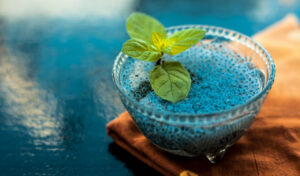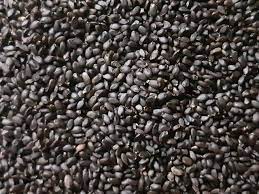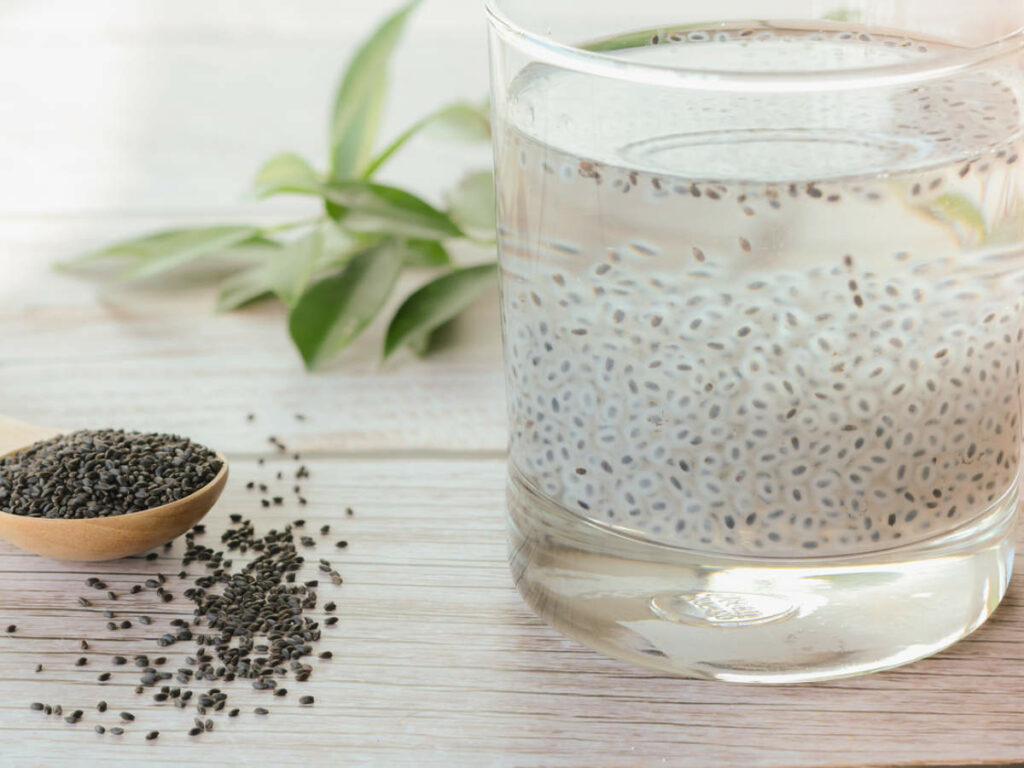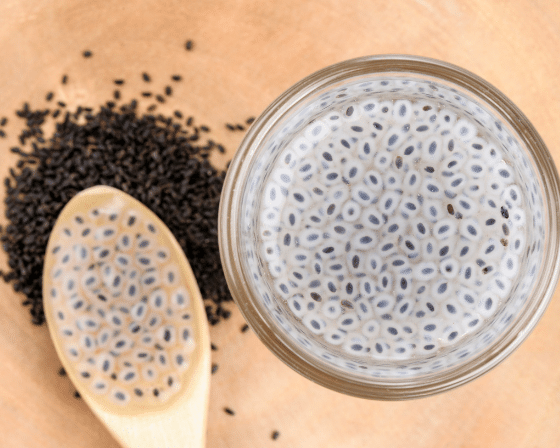Are you looking to jump-start your weight loss journey and need some new, interesting recipes to try out? Sabja seeds are the perfect addition. Not only do they pack a lot of nutrition and health benefits, but they can also be used in a variety of dishes for maximum flavor and weight loss benefits. In this blog post, we will discuss the health benefits of sabja seeds as well as any potential side effects that you should be aware of. Additionally, we will look at some delicious sabja seed recipes that are sure to make your weight loss journey more exciting and flavorful!
Contents
What are Sabja Seeds?

Sabja seeds, also known as basil seeds, are small black seeds that have a variety of health benefits. They are rich in antioxidants and help to boost metabolism, which can aid in weight loss. Additionally, they help to regulate blood sugar levels and are a good source of fiber.
There are a few different ways to consume sabja seeds. One popular method is to soak them in water for a few minutes until they become gelatinous. This can be done with hot or cold water. Once they have soaked, they can be added to smoothies and juices, or simply eaten on their own.
Soaking the seeds before consuming them helps to unlock all of their nutrients and health benefits. However, it is important to note that sabja seeds should not be consumed in large quantities as they can cause digestive issues such as bloating and gas. When consumed in moderation, however, they can be a healthy addition to any diet.
Nutritional Value of Sabja Seeds
Sabja seeds are a nutritional powerhouse. They are rich in vitamins, minerals, proteins, and fiber. The health benefits of sabja seeds are numerous, making them an excellent addition to your diet.
One of the most impressive things about sabja seeds is their high vitamin content. One tablespoon of these tiny seeds contains over 10% of the RDA for vitamins A, C, and K. They are also a good source of manganese, iron, and calcium.
In addition to being packed with nutrients, sabja seeds have several other health benefits. They have been shown to improve digestion, lower cholesterol levels, stabilize blood sugar levels, and promote weight loss.
If you’re looking for a nutritious way to add more protein and fiber to your diet, look no further than sabja seeds. These versatile little seeds can be used in a variety of recipes or simply added to smoothies or yogurt for a boost of nutrition.
Health Benefits of Sabja Seeds

Sabja seeds, also known as tukmaria or basil seeds, are the small black seeds of the sweet basil plant. They have a long history of use in Ayurvedic and Chinese medicine.
Recent studies have shown that sabja seeds have several health benefits. They are a good source of fiber, antioxidants, and vitamins A and C. They can help lower cholesterol and blood sugar levels, and improve digestion.
Sabja seeds are also thought to promote weight loss. One study showed that taking 25 grams of sabja seed powder with water before meals helped people lose weight and body fat. Another study found that taking 30 grams of sabja seed powder daily for eight weeks reduced waist circumference and body weight in obese adults.
Some other benefits of sabja seeds include improved hair growth, increased energy levels, and improved skin health. They are also known to have anti-inflammatory properties that can help reduce inflammation in the body.
If you’re looking to lose weight or improve your overall health, consider adding sabja seeds to your diet. You can add them to smoothies, and juices or simply soak them in water for a refreshing drink.
Side Effects of Sabja Seeds
Sabja seeds are generally considered safe. However, like all supplements, they may cause side effects in some people.
Some potential side effects include:
Allergic Reactions
One of the most common sabja seed allergy symptoms is itching. People who are allergic to sabja seeds may also experience hives, swelling of the face or throat, and difficulty breathing. Sometimes, a severe allergic reaction can be life-threatening and require immediate medical attention.
Kidney Stones
Sabja seeds are high in oxalates, which can increase the risk of kidney stones in some people. If you have a history of kidney stones, it’s best to avoid sabja seeds or limit your intake.
Interactions with Medications
Sabja seeds may interact with certain medications, such as blood thinners and diabetes medications. Talk to your healthcare provider before taking sabja seeds if you’re taking any medications.
Excessive Consumption
Sabja seeds should not be consumed in large quantities as they can cause digestive issues such as abdominal cramps and diarrhea. Eating too many sabja seeds can also lead to an imbalance of electrolytes in the body, which can cause fatigue, headaches, and other unpleasant symptoms.
These are some of the potential side effects and risks associated with consuming sabja seeds. If you experience any of these symptoms, it’s best to stop taking sabja seeds and consult your healthcare provider.
How To Include Sabja Seeds in Your Diet for Weight Loss?

Sabja seeds are a lesser-known but powerful weight-loss tool. Also known as basil or tukmaria seeds, they swell up and form a gel-like substance when soaked in water. This can help you feel fuller for longer and prevent overeating.
What’s more, sabja seeds are rich in fiber and antioxidants, both of which promote gut health and aid in weight loss. Fiber helps keep you regular and speeds up digestion, while antioxidants protect your body against oxidative stress, inflammation, and cell damage.
Take a Spoon With a Cup of Water
One of the easiest ways to have sabja seeds is to take a spoon of them with a cup of water. After drinking the water, you can eat the seeds directly or add them to your morning smoothie or yogurt.
Soak Them and Turn them Into Smoothies
Soaking sabja seeds overnight turns them into a gel-like substance that is easy to include in recipes. You can use this gel as a base for making healthy smoothies, ice cream, and beverages. It will not only improve the taste but also enhance their nutritional content.
Make Salads More Interesting With Sabja Seeds
Sabja seeds are an excellent way to spruce up salads and other dishes. The soaked form of these tiny black pearls adds texture and flavor to your dishes and makes them more interesting. You can also sprinkle some roasted sabja seeds on top of salads for crunch.
Add Sabja Seeds to Your Dishes
Sabja seeds are a great addition to curries, stir-fries, soups, and other cooked dishes. You can also add them to salad dressings and dips or use them as a topping on desserts like ice cream and yogurt.
These are just some of the ways you can include sabja seeds in your diet for weight loss. If you’re looking to lose additional weight, it’s important to combine these healthy snacks with regular exercise and a balanced diet.
Recipes with Sabja Seeds
There are many different ways to incorporate sabja seeds into your diet. These can help in both sweet and savory dishes. One of the best things about these little seeds is that they can help you feel fuller for longer, making them ideal for weight loss.
Here are some delicious recipes that feature sabja seeds:
1. Sabja Seed Porridge: Start your day with a nutritious breakfast by adding some soaked sabja seeds to your oatmeal or porridge. You can also add fruits like berries or bananas for extra flavor and sweetness.
2. Sabja Seed Smoothie: A refreshing smoothie is a great way to get your daily dose of fruits and vegetables, and adding soaked sabja seeds will give it an extra boost of nutrition. Try blending them with spinach, kale, avocado, berries, and almond milk for a delicious and healthy treat.
3. Sabja Seed Salad: Add some soaked sabja seeds to your favorite salad recipe for an extra punch of protein and fiber. They go especially well with green leafy vegetables, cherry tomatoes, and feta cheese.
4. Sabja Seed Soup: For a hearty and filling meal, add soaked sabja seeds to your favorite soup recipe. They pair well with ingredients like carrots, sweet potatoes, onion, and celery.
5. Sabja Seed Desserts: Add some soaked sabja seeds to your ice cream or yogurt for a flavorful and nutritious treat that’s sure to satisfy your sweet tooth. You can also add them to cakes and cookies for an extra boost of nutrition.
6. Sabja Seed Beverages: For a refreshing drink, try adding soaked sabja seeds to your favorite juice or smoothie. You can also blend them with almond milk for an energizing and nutrient-packed beverage.
Conclusion
Sabja seeds are a great addition to any weight loss diet. They are packed with vitamins, minerals, and antioxidants that can help boost your overall health and aid in weight loss. With their low calories, these little seeds can give you an extra boost when it comes to managing your daily caloric intake for healthy weight management. Plus, they make for some delicious recipes too! So why not give them a try? You won’t regret it.
Consider contacting FitMantra for additional information on nutrition and fitness. You can also get in touch with their nutrition experts through our online nutrition counseling, who can guide you through the process and help you achieve your fitness goals. You can also lose weight with the help of our weight loss program. Download our Fitness app on Android to learn more about us.

I was reading some of your content on this website
and I think this site is rattling informative!
Keep on putting up.Blog monetyze